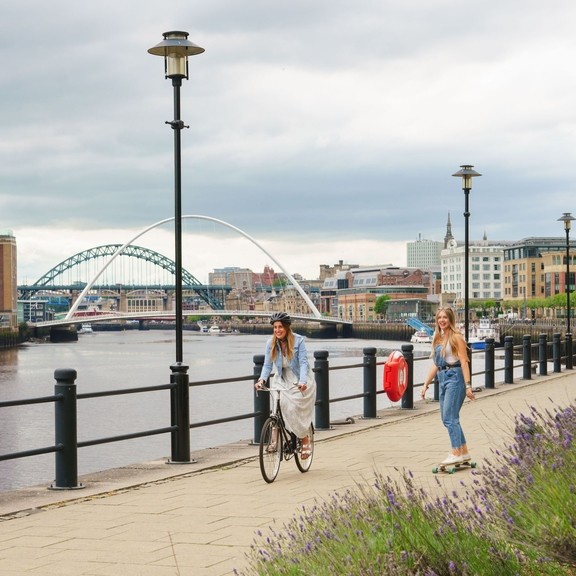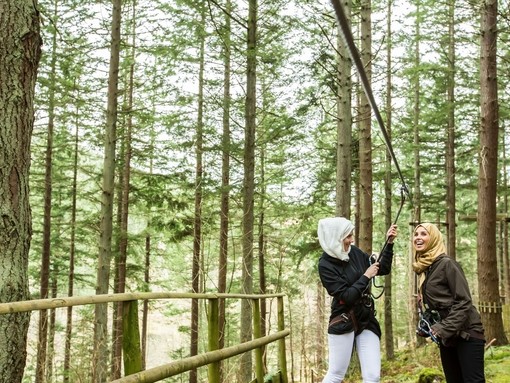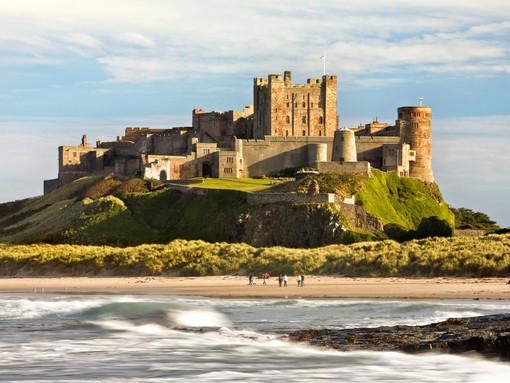Newcastle-upon-Tyne
Why we love Newcastle upon Tyne
Linked by no fewer than seven bridges around a bustling quayside, Newcastle and Gateshead form one vibrant place to visit. Overlooked by Britain’s biggest sculpture – the iconic Angel of the North, it’s where centuries-old history and heritage meets green innovation. Catch spellbinding shows at The Glasshouse International Centre for Music, enjoy award-winning restaurants and indulge in shops and cafes at the city’s historical heart. Newcastle frequently tops the charts for best place to club, as well as offering fantastic evenings at everything from comedy clubs to classes for mixologists. And for a slower pace altogether – the city has indulgent green spaces and serves as a great base for exploring Hadrian’s Wall.
Featured things to do
A weekend of microbreweries and food
Discover Wylam Brewery at Exhibition Park's Palace of Arts, a 30-barrel brewery, taproom and kitchen, serving local and vegan foods. Guided tours run on Sundays.
Learn more about Wylam BreweryParty on at Northern Pride
Join the pride march and wave the flag for Britain’s Northern Pride that brings celebrations to centre stage and across the city. Explore the Market Village then enjoy music and entertainment at the main arena.
Enjoy Northern PrideGet active at Heaton Park
Founded in the Victorian era, this urban idyll is criss-crossed with walking and cycling trails.
Explore this green space and wildlife havenNewcastle Christmas Market
Usually taking place in and around the city centre, grab your gloves and a mulled wine and explore the Newcastle Christmas Market, selling everything from food and drinks to gifts and decorations.
Head to the Newcastle Christmas MarketPlaces to stay in Newcastle upon Tyne
Quayside
Spy the city’s iconic bridges, including the Gateshead Millennium Bridge - and stay in the centre of Newcastle Gateshead’s cultural heart.
Grainger Town
Home to the city’s nightlife and a raft of neoclassical buildings, be close to the Grainger Market and its bustling dining and shopping offering.
Jesmond
Found 10 minutes from the city centre, discover a stylish suburb packed with an eclectic mix of quirky boutiques, restaurants and bars.
Explore nearby
Getting to Newcastle
You can get to the north east of England by rail, sea, and air, making it easily accessible from across Britain. Newcastle International Airport is around seven and a half miles (12 kilometers) from the city and serves more than 80 destinations around the world. A ferry service from DFDS also connects Newcastle Gateshead to Amsterdam in the Netherlands.
London North Eastern Railway has rail links from London to Newcastle. Departing from London Kings Cross to Newcastle, the train takes approximately three hours and offers views across central and northern England as you go.
Coach travel from London to Newcastle takes around six and a half hours with National Express and Megabus.
Getting around
Newcastle Gateshead can be discovered via an extensive public transport system or on foot, with bike hire also available for those keen to explore on two wheels.
By bus
Bus travel is a convenient way of getting around Newcastle and Gateshead, and everywhere in the region is accessible with Go North East.
By train
An award-winning Tyne and Wear metro system has 60 stations around Newcastle, Gateshead, Sunderland, North Tyneside and South Tyneside. Airport connections take just 23 minutes.
By bike
Hop on a bike and explore Newcastle Gateshead and beyond from Quayside, with plenty of safe and scenic routes in the Northumberland countryside, too.
Want to know more?
Check out Visit Newcastle Gateshead for insider tips and travel inspiration.





























